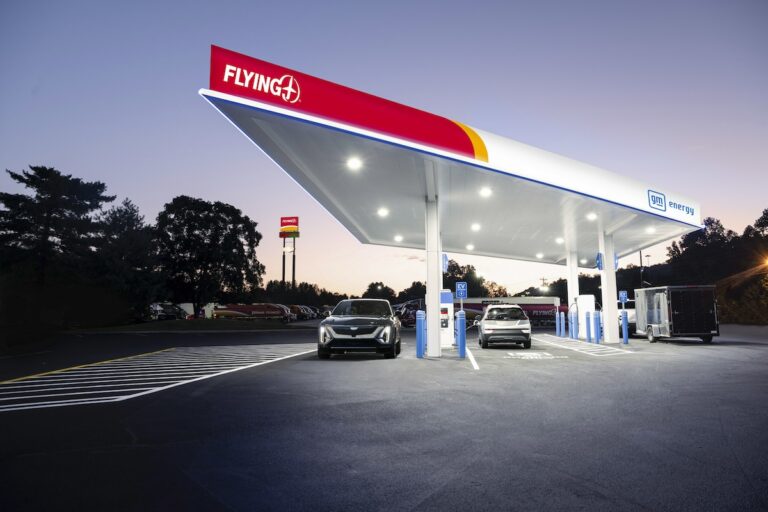
Sales of electric vehicles have stagnated, and the stock of EVgo Inc. has trended down over the last year or so.
The stock did see a nice bump up late last week. Still, when the share price of the West L.A.-based electric vehicle charging station and infrastructure company closed at $3.59 on Dec. 14, it was down 34% from a year earlier.
And this comes after the company saw a nearly 18% increase in share prices after announcing on Nov. 8 its third-quarter financials. The stock price closed at $2.30 on Nov. 7 and then closed up at $2.71 the following day.
Since then, the company has seen its share price go up to a close of $3.34 on Dec. 4, even though it decreased by 9.5%, to a close of $3.02 on Dec. 5, the same day it announced that it had opened the first 17 locations of chargers at travel facilities owned by Pilot Travel Centers LLC.
In July of last year, the company announced a collaboration with Pilot in Knoxville, Tennessee, and General Motors Co. in Detroit to deploy up to 2,000 charging stations at about 500 Pilot Flying J travel centers across the United States.
Dennis Kish, EVgo’s chief operating officer, said the company was committed to delivering a convenient, reliable and customer-centric charging experience.
“With robust amenities, optimal corridor locations, high-power charging and more, our collaboration with GM and Pilot Company puts drivers first and boosts range confidence for every EV traveler on the road,” Kish said in a statement.
EVgo’s shares closed at $3.59 on Dec. 14.
Earnings report
The company reported on Nov. 8 a net loss of $9.7 million (-9 cents a share) for the quarter ending Sept. 30, compared with a net loss of $13.2 million (-19 cents) in the same period of the previous year. Revenue increased by 234% from the third quarter of the prior year to $35.1 million.
The revenue boost was attributed by Chief Financial Officer Olga Shevorenkova to increased retail charging fees for individuals.
“Retail charging revenue grew from $5.2 million in the third quarter last year to $13.4 million in the third quarter this year, exhibiting a 158% year-over-year increase,” Shevorenkova said during a conference call
on Nov. 8 with analysts to discuss third quarter earnings. “Commercial charging revenue grew from (less than $700,000) in the third quarter last year to (just over) $4 million in the third quarter this year, a 496% year-over-year increase.”
Cathy Zoi, the then-chief executive of EVgo, said in her final earnings call that the third-quarter results were “phenomenal” and that the “EVgo growth engine is indeed humming” with “revenues, throughput and utilization trending superbly.
“It’s clear that being a leading owner and operator of well-located charging infrastructure to service an increasingly hungry fleet of electric vehicles is a winning strategy,” Zoi said during the call.
Zoi retired from EVgo on Nov. 9 and was replaced by Badar Khan, a lead independent director on the company’s board of directors since last year.
From 2017 to 2022, Khan worked for National Grid, one of the largest investor-owned utilities in the United States. Most recently, he served as president of National Grid US, overseeing the provision of energy and clean energy products to more than 20 million people across Massachusetts, New York and Rhode Island. Prior to National Grid, Khan worked at Centrica plc for 14 years in the U.S. and England, including four years as chief executive of Direct Energy, it’s North American subsidiary.
